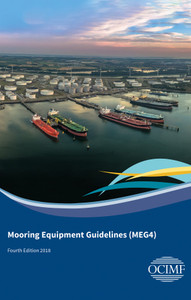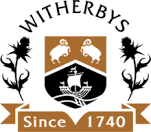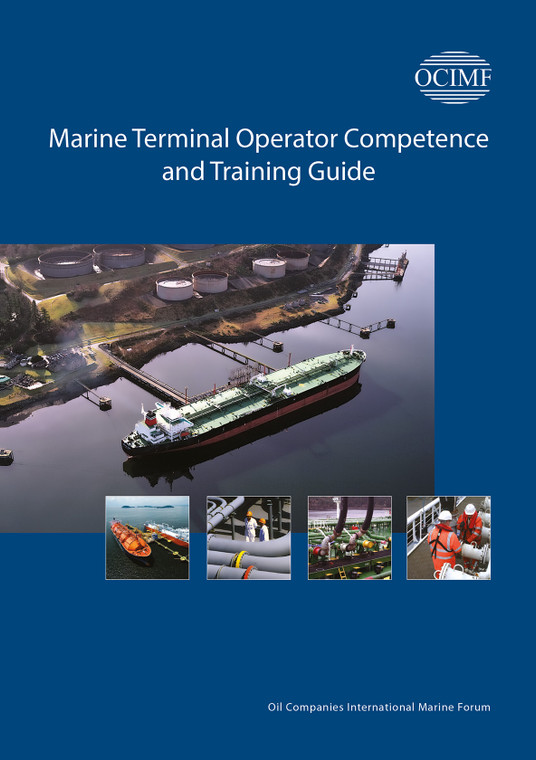
This OCIMF guide assists in the design of marine terminal operator training courses that achieve and maintain the highest practical standards of competence.
This OCIMF guide is design to assist with:
- Determining the competencies required for marine terminal staff that are responsible for the safety of the ship/shore interface
- assessing the competence of members of marine terminal staff
- establishing training needs for each member of staff
- developing appropriate training/self-help programmes to satisfy training needs.
The recommendations within this publication are generic and designed to be applicable to all marine terminals handling bulk liquids. They can be tailored by users to the requirements and operations of individual terminals, in order to develop site specific training.
This publication supersedes Marine Terminal Training and Competence Assessment Guidelines for Oil and Petroleum Product Terminals.
Purpose and Scope
This ‘Marine Terminal Operator Competence and Training Guide’, which supersedes the 1st edition of ‘Marine Terminal Training and Competence Assessment Guidelines for Oil and Petroleum Product Terminals’, published in 2001, contains recommendations that are provided with the aim of assisting managers of marine terminals to achieve and maintain the highest practical standards of competence of those terminal staff having roles associated with the ship/shore interface.
The purpose of this Guide is to assist managers of marine terminals to:
- Determine the competencies they require for marine terminal staff having responsibilities for the safety of the ship/shore interface. For the purposes of the Guide, the two staff levels considered are ‘Supervisors’ and ‘Operators’
- assess the competence of members of their marine terminal staff
- establish training needs for each member of staff
- develop appropriate training/self-help programmes to satisfy the training needs.
The recommendations contained in this Guide are generic and designed to be applicable to all marine terminals handling bulk liquids, irrespective of the berth type or range of cargoes handled. It is recommended that the Competence Framework and accompanying training guidance will be tailored by users to the requirements and operations of individual terminals and will assist with the development of site-specific training that addresses site-specific operations.
The scope of the guidance is limited to activities and operations that are associated with, and impact on, the ship/shore interface. The guidance does not specifically address terminal operations such as those related to the routine management of the tank farm. Likewise, it does not include the training, knowledge or skills necessary for safe and efficient shipboard operations, except to the extent necessary for terminal staff to be assured that shipboard operations that impact on the ship/shore interface are being conducted in a proper manner. Knowledge of these shipboard activities will enable terminal personnel to properly complete the joint checks required during a vessel’s visit, such as those addressed by the ISGOTT Ship/Shore Safety Checklist.
The advice given in this Guide is subject to any local or national regulations regarding the training and/or certification of marine terminal staff. Terminal managers and others concerned with the implementation of these Guidelines should ensure that they are aware of any such requirements.
Glossary
Abbreviations
Section 1: Purpose and Scope
Section 2: Introduction
Section 3: Implementation Guidance
Section 4: Training Guidance
Section 5: Verification of Effectiveness of Training
Appendices
A. The Competence Framework
B. Competence Element Templates
C. Sources of Further Information
The
Oil
Companies
International
Marine
Forum
(OCIMF)
is
a
voluntary
association
of
oil
companies
with
an
interest
in
the
shipment
and
terminalling
of
crude
oil,
oil
products,
petrochemicals
and
gas.
OCIMF
focuses
exclusively
on
preventing
harm
to
people
and
the
environment
by
promoting
best
practice
in
the
design,
construction
and
operation
of
tankers,
barges
and
offshore
vessels
and
their
interfaces
with
terminals.
Learn
more
at
https://www.ocimf.org/#about
- Number of Pages:
- 136
- ISBN:
- 9781856095761
- Binding Format:
- Hardback
- Book Height:
- 300 mm
- Book Width:
- 250 mm
- Weight:
- 0.9 kg
- Published Date:
- January 2013
- Author:
Oil Companies International Marine Forum
- Preview:
- Yes
- Publication Date:
- February 2013
- Physical:
- (In Stock)
 Witherbys.com
Witherbys.com





